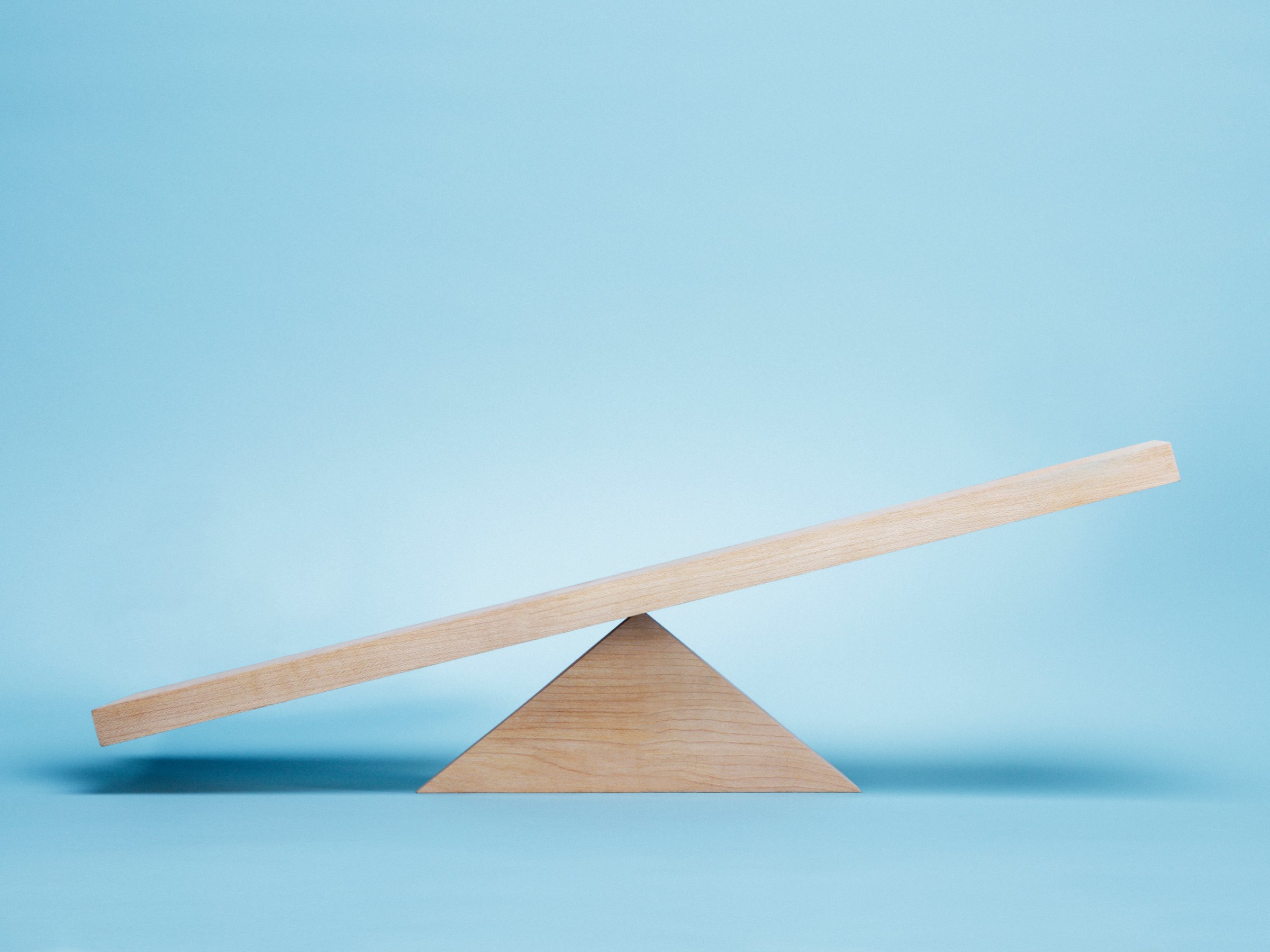
As a current startup CEO and former Microsoft exec, I frequently get asked how I maintain a healthy work-life balance.
The common definition of balance seems to be about how we partition our time: X number of hours spent with family, friends, and self; X number of hours given over to the business.
Please, I’m a former Microsoftie. The line between my work and the rest of my life has never been that clear. I’ve come to realize that “balance” refers to a wide range of possible states of being, from the solid, comfortable, two-feet-on-the-ground kind to the precarious, exhilarating, on-the-head-of-a-pin variety. Startup world leans to the latter, though on any given day, I might be just about anywhere on that range.
For example, in startup world, a 12- or 15-hour workday isn’t unusual. Sneaking in several hours’ work on the weekend is standard operating procedure. My company is on my mind front-and-center or niggling somewhere in the back pretty much anytime I’m not asleep. But is that “unbalanced”?
For me, balance is about my state of mind, not the activities that fill my time. “Balanced” for me means nervous, but cautiously optimistic. “Balanced” is challenged, but confident. “Unbalanced” is panicked, retreating, and doubtful. “Balanced” is being wholly in the moment, wholly engaged, and undistracted, no matter if I’m hanging with my family or mulling over vaginal moisturizer ingredients with the techs.
That doesn’t mean I’m only in balance when things are good—it means when I’m balanced, I respond to setbacks appropriately.
Here’s how I’m learning to dance on the head of a pin and love it:
1. Know yourself and act accordingly
I know there are parts of running a business I don’t love to do, but that will freak me out if they’re not done—like managing the supply chain or optimizing Amazon listings. I do those on Sunday evening, when I’m cozy at home and my husband is also getting some work done. That way, it doesn’t feel like such an intrusion. I also know when I need to go for a run, hang out with friends, indulge in a new recipe, or simply put down my device because I’m anxious inside. It’s like an alarm goes off inside my body when my brain is fried, and I’ve figured out how to listen to it without feeling guilty.
When I was 16 and spending more time outside of the family home, my dad would always say, “Remember who you are.” For the longest time, I didn’t know what that meant, until I moved away, met new crowds of people, started my career, and figured out where I fit in. For him, it came from a place of moral and ethical beliefs. For me, knowing and being true to myself is how I find balance.
2. Plan
I plan like a wild woman. At Microsoft, I worked closely with an executive who would plan out his time across five parts of his life—X number of hours devoted to leadership/team development, family, mentoring, customers, and business—allocated across his year. His assistant would color-code his calendar, and then he lived by it. I may not be that maniacal, but I prioritize what needs to happen and block out time to concentrate on those things first. It’s a rare day when my list actually gets accomplished, but knowing what did and didn’t get done means I can prioritize my tomorrow and prepare some contingency plans, if necessary.
3. Ask for help
Normally, I suck at this, but when the buck stops at your desk, autonomy is a luxury you can no longer afford. Besides, I have spent a lifetime building a network of amazing people who can do all sorts of things I can’t. But I don’t ask for fish; I ask them to teach me to fish, so I can still feel confident in my abilities and they can rest assured my ask won’t be a regular request. Of course, there are limits to my ability to scale, so I pick my places for new fishing, and leave the others to the experts. Asking for help is what keeps you from drowning—there’s too much to do alone and still do well. Your customers deserve to have the best from you and your team.
4. Let go
When there’s nothing more to be done—when the wheels are in motion and the deadline has passed, I let go. That’s where all of my planning and listing and asking for help really makes the difference. If I’ve done my homework, drafted the right roadmap, and enlisted the best assistance, I can let go and be okay with the result.
Work-life balance isn’t just about finding time for my family or a good book; it’s about finding the peace within myself to be where I am right now, without resentment or anxiety. Being balanced is about owning it, knowing who I am, and then living within my means of time, money, and energy. It’s a process I’m still learning and refining, but the more I get to know myself, the better I am at being what I call balanced. As my dad said (and still says), “Remember who you are.”
This article originally appeared on Fortune.com
More Must-Reads from TIME
- Donald Trump Is TIME's 2024 Person of the Year
- Why We Chose Trump as Person of the Year
- Is Intermittent Fasting Good or Bad for You?
- The 100 Must-Read Books of 2024
- The 20 Best Christmas TV Episodes
- Column: If Optimism Feels Ridiculous Now, Try Hope
- The Future of Climate Action Is Trade Policy
- Merle Bombardieri Is Helping People Make the Baby Decision
Contact us at letters@time.com